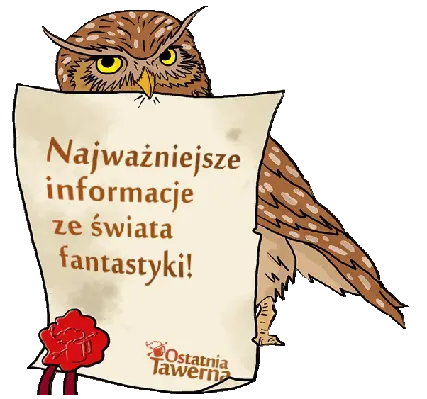We’re coming out of the underground
Dmitry Głuchowski is an author who needs no introduction. The titled and talented writer fathered another child, quite different from the ones heretofore, but by no means worse.
This time, the author presents the reader with a vision of a destroyed Russia, but does not explain why. He only uses the mysterious term “Decay.” The fact remains that the land has become contaminated and is not suitable for growing anything. The institutions scattered around the fallen country are reliant on food supplies from the capital.
Following the protagonists’ footsteps, we find ourselves in one of such fortresses, located in Jarosław, where a group of survivors lives, sheltered by an armed garrison. The task of this garrison is to guard the railway bridge over the Volga, or rather what was once the Volga. Currently, it is a green, toxic sewage, shrouded in poisonous vapor, which effectively separates the facility from what is left on the other side. For some time, life was going on somehow outside the walls of the Post. The garrison was not disturbed. Until a man comes across the bridge and through the green fog. A living man … From now on, nothing remains the same and nothing will be as it seemed.
That side
The arrival of a living person from across the bridge is initially like a mirage. Nobody accepted the fact that something might have survived on the other side. The event is accompanied by an aura of mystery and mystery. And also fear. Great, panicky fear of the other side. Inhabitants of the facility feel that there is an inexpressible terror lurking there that will soon consume them.
These feelings also affect the reader strongly. The author gives concerts a heavy, dark and gloomy mood. The narrator takes you through the events like a jack-o’-lantern through a haunted swamp where one inattentive step may be the last. The atmosphere of the novel is simply amazing. It keeps you in suspense from the beginning to the end. You can get scared by reading, you can be surprised. You can also feel empathy or hatred. Due to the fact that Głuchowski writes in the present tense, the action is fast-paced, the plot escapes on rapidly turning pages. The latter does not allow itself to be detached from itself or to be forgotten. Even between chapters it’s hard to stop reading, because the events stop at such moments that we want to know immediately what will happen next. The three-person narrative does not obstruct the reception. Each of these minor stories is interesting in itself, and as they start to overlap, it gets even more interesting. All chapters are equally enjoyable to read.
Shorter but more concise
There are only a few main characters in Outpost . Their perspectives are intertwined across ten large chapters. We find much less plots than in the Metro series , the whole novel is also more modest and more uniform. It allows you to concentrate better on the action. It also gives the impression of a more adult story than the one known from Metro. Instead of a philosophical odyssey, we have a brutal, gloomy theme with descriptions kept to a minimum. What counts is the idea of the story, leading through events and characters. The novel is much better to read than the Metro. Very quickly, and therefore it is impossible to stop reading. Although the assumption is similar to that in the Metro,however, this is something else. The author has not reinvented the wheel, Outpost has an idea for himself and is a great introduction to the new series. In my opinion, it surpasses the achievements of the Russian so far. So far, only Wroczek and his Piter had made a similar impression on me , where I was not bored with reading and even after many pages I did not have enough and wanted more.
Will there be?
The story and its presentation are the greatest strengths of this work. He is close to being perfect. My personal gripe is that in the end the author does not explain exactly why certain events happened. I was hoping for a bit to find out what or who was behind it and what their motives were. Unfortunately, the name of one of the protagonists, which is clearly American, also emanates from the wonderful atmosphere. All the rest of the characters have East European, mainly Russian, names. In addition, the cover looks a bit confusingly similar to those from the Metro series .The book deserves its own niche, it should not remain overshadowed by the trilogy. I believe that a more distinctive, bolder cover would be a plus. However, I cannot fault the rest of the release. I haven’t found any liter, the font is fine. From the technical point of view, both the structure of the text and its placement on the pages are perfectly appropriate.
On the bridge!
To sum up, although it is somewhat lacking in perfection, it does not spoil the perception of the whole. Outpost is a piece of solid reading where the tension rises from the start to explode beautifully at a turning point. If you like postapo , Outpost is a must see.
Are you still reading these scribbles? Leave it, fire up the internet and browse the bookstores. Seriously, it’s worth it. Głuchowski is still in shape! So many words of God today.

